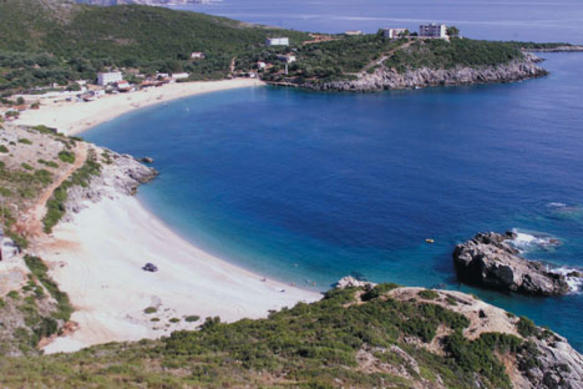
Albania: IMF praise, with caveats
October 8, 2012 by Andrew MacDowall
In 2009, with the global economy in recession, Albania was one of the few countries in Europe to register GDP growth. While some Eastern European countries saw double-digit negative growth, Albania clocked up an impressive plus- 3.3 per cent. The country’s economic performance since then has been steady, if unspectacular, as an IMF staff team reported at the end of its visit to Albania. The going is getting tougher, however, with external and fiscal pressures building.
“Since the onset of the global crisis in 2008, the Albanian economy has experienced only a modest growth slowdown, and broadly maintained banking system stability, thanks to timely policies and macroprudential actions,” Nadeem Ilahi, the IMF’s mission chief in Tirana, said in a Fund statement last week. As the IMF has remarked in the past, Albania benefitted from sound policy in the years before the crisis – a time when some other countries in the region were not being so prudent.
This allowed Albania to undertake substantial fiscal and monetary stimulus programmes in 2009, which played a major role in keeping the economy moving forward, albeit at less than half the 7.5 per cent rate seen in 2008. Growth was also helped by increasing investment in real estate in Albania, particularly on the coast and in Tirana, in which British investors were prominent.
“In addition to the factors identified by the IMF, growing FDI, exports, agricultural production and tourism have also contributed to maintaining positive economic growth even during these last four difficult years,” says Artan Hoxha, an Albanian analyst, commentator and former minister.
In 2010 and 2011, Albania continued its respectable economic performance. This year, with the eurozone crisis taking its toll, the IMF expects growth to be a meagre 0.5 per cent – by no means disastrous, but a significant slowing, and a low rate for what remains one of Europe’s poorest countries. It’s worth bearing in mind that even the 5 per cent-plus pace achieved over much of the last decade was from a low base.
The Fund forecasts a slight pick up to 1.3 pe cent next year, but warns that the government must pursue fiscal tightening to prevent national debt growing. It suggests “cumulative fiscal consolidation of about 3.1 percentage points of GDP” to meet the target debt ratio of 53 per cent of GDP by 2017, recommending tax reform and use of privatisation revenue to reduce debt and clear outstanding bills as steps in that direction.
Also on the IMF wish-list “prompt action” on tackling non-performing loans in the banking sector (otherwise admirably solid), and improvements to the business climate including strengthening the legal system and liberalising labour legislation.
IMF calls for fiscal consolidation and structural reform are to be expected anywhere in the world. A more immediate worry for the country is external, particularly as Italy and Greece are its two largest commercial partners.
Hoxha says:
I believe that, in the medium term, the economy will continue to perform well if we maintain macroeconomic stability, further improve the business environment, hold a low and flat tax rate system, improve the law enforcement, invest intelligently in human capital and progress faster towards European integration.
But the eurozone crisis is continuing and its end is not yet visible, and this is a serious external risk for Albanian economy. We must also hope that the crisis will come to an end soon, otherwise the small Albanian economy cannot continue the good performance demonstrated so far.
Please contact us using the form below:



